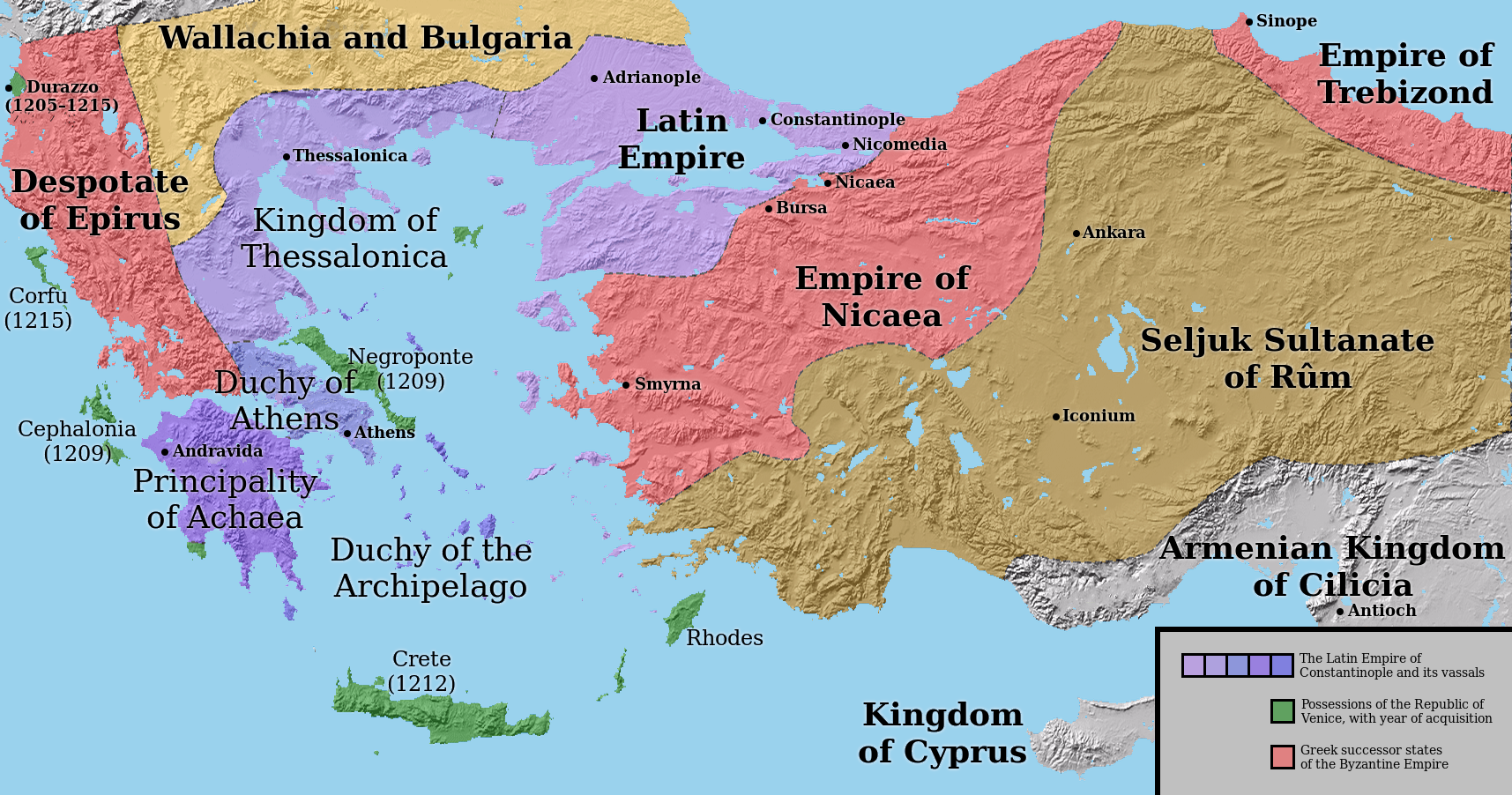After the sack of Constantinople, the Latins elected Baldwin of Flanders as the first Latin emperor (12041205), and the title continued in his family during the fifty-seven years of Latin occupation. The Venetians chose the first Latin patriarch and kept a monopoly on that rich office. The territories of the Empire were divided on paper, since most of them had not yet been conquered.
The Venetians secured the long sea route from Venice by claiming the best coastal towns and strategic islands. A hybrid state was created in which the emperor’s council consisted half of his own barons and half of Venetian merchants. Although in theory the Latin emperors were the successors of Constantine and Justinian, in practice they never commanded the loyalty of the Greek population and could not make important decisions without the counsel of their barons.
In Asia Minor Greek refugees from Constantinople set up a state in Nicaea and constantly threatened to recapture Constantinople. Outnumbered, incompetent as diplomats, miserably poor after the treasures of Byzantium had been wasted, the Westerners could not maintain their empire. When the popes became deeply involved in their quarrel with the Western emperor Frederick II, the Latin Empire was doomed. In 1261 the Greeks of Nicaea seized
Constantinople and reestablished the Byzantine Empire.
Meanwhile, however, the Latins had fanned out from Constantinople. Greece was divided into a series of feudal principalities. The Peloponnesus became the principality of Achaia, with twelve feudal baronies and many minor lordships. Thessalonica became the capital of a new kingdom, which, however, fell to the Greeks in 1224. In the Aegean a Venetian adventurer established the duchy of Naxos, and other barons, mostly Italian, founded their own tiny lordships among the islands. The Venetians held Crete. These feudal states lasted for varying periods, but most of them were wiped out during the Turkish conquest in the fifteenth century.
Despite its decline, Byzantium in the eleventh and twelfth centuries retained much vitality. Economic activity appears to have increased as government controls were relaxed. Literature, law, and scholarship flourished. Vernacular literature was popularized; heresy grew, and alien cultures were viewed with less suspicion. A class of professional intellectuals emerged, as did a new aristocracy.
Such social changes did not enable Byzantium to retain its earlier sense of pride, however. Unlike the West, where provincial towns became centers of importance, Byzantine towns did not develop beyond an artisanal level. International trade was left to foreigners. Byzantium was clearly advancing far less rapidly, culturally and economically, than the West.

